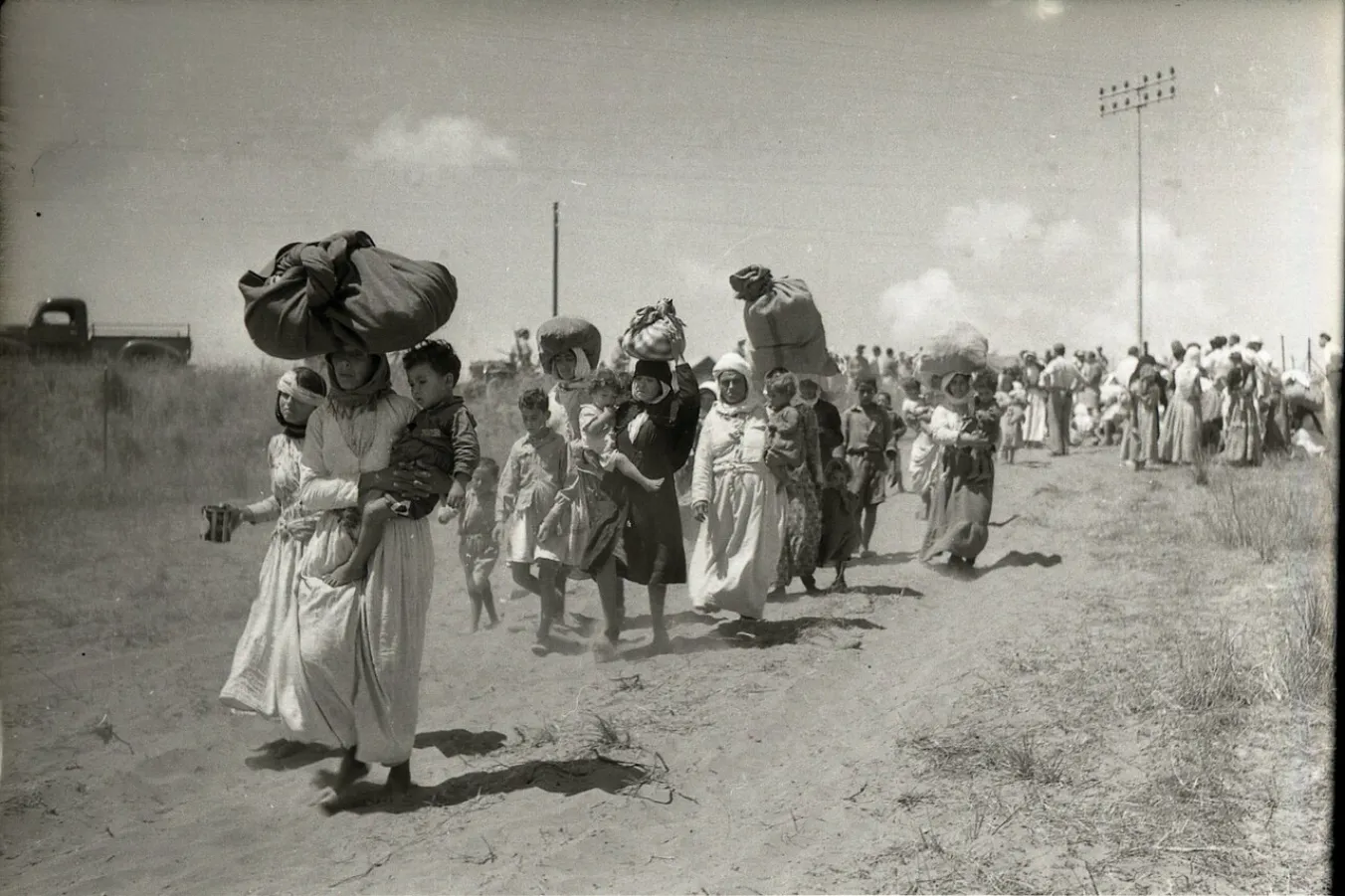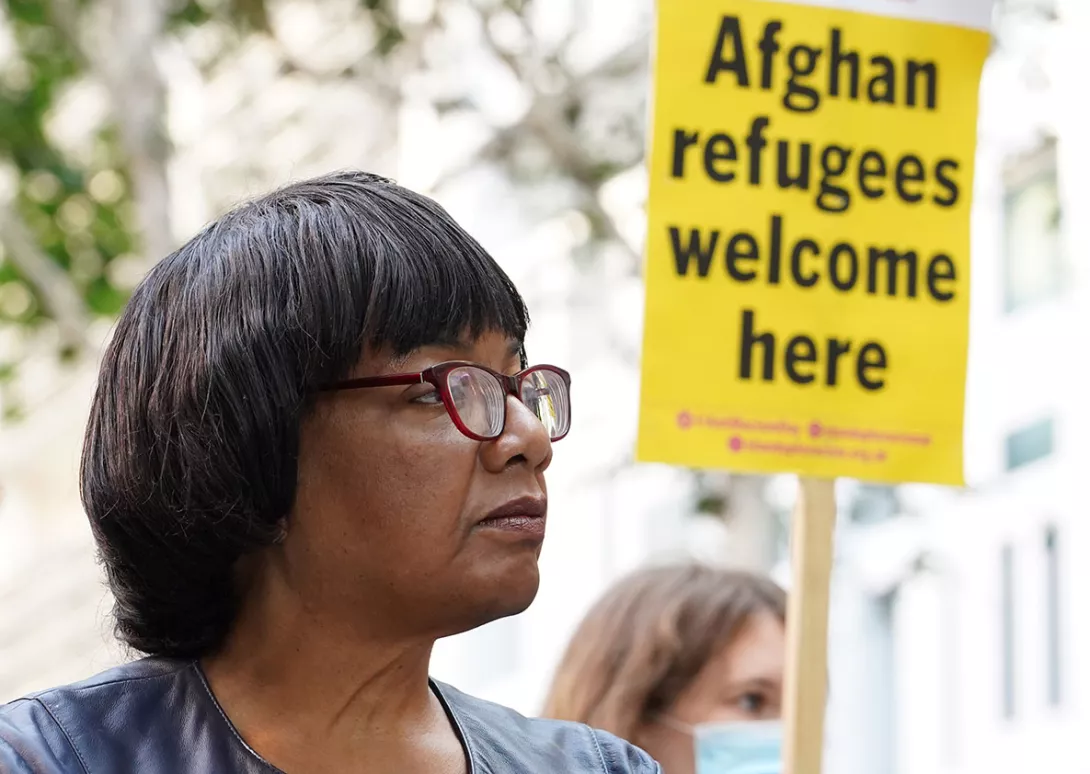
RISHI SUNAK’S reaction to Diane Abbott’s exquisite victory over Starmer’s hit squad was to claim that Angela Rayner — who openly sided with the persecuted Hackney MP against Starmer — was now in charge of Labour.
She isn’t, of course. But she does have something of an independent mandate in that she was directly elected to her deputy post and was notionally a concession to the idea that Labour remained a broad church.
The price she has paid for remaining little more than a decoration to the new regime is to be incrementally compromised by Starmer’s serial betrayals, staying silent while he and Rachel Reeves firmed up their neoliberal economic policies.
She now has a choice. Continue to shadow Starmer or make an appeal to that enormous, and expectant, constituency of Labour supporters who want an alternative to the Westminster consensus on everything from economic policy to war and peace, justice and equality.
The Establishment consensus (not to mention the troubled tensions on the Tory benches) is that Starmer will be premier. This accounts for the fact a full century of Tory MPs — and MPs over the first flush of youth — see little chance of ministerial office for the foreseeable future.
The electorate is not enraptured by Starmer’s mix of pastiche patriotism and orthodox Treasury thinking and Tory, Lib Dem and nationalist voters alike remain attached to public ownership, a properly functioning welfare state, decent health services and schools and wages that at least keep pace with price rises and profits.
If Labour wants to seal the deal with voters then Rayner could begin to give voice to these ideas, find common ground with the trade unions, try and win back youth, not least on Gaza, and muzzle Starmer’s attack dogs.
If Labour does become the government it will face exactly the same problems in securing popular consent as the Tories unless it does something substantial to reverse Britain’s decline, restore public services, solve the housing crisis, improve education, squeeze capital out of the NHS and abandon our humiliating submission to Nato aggression and US foreign policy.
If Abbott’s triumph over the Mandelson tendency in Labour is to mark a change of mood and climate in the party then the forces for change inside the party and the affiliated unions need to find common ground with the mass movement now beyond the party and begin to devise a strategy that can effect change. That this also entails a new approach to black people, Asian people and, in a different way, to British Jews is a precondition for progress.
When Abbott penned her maladroit letter about the different ways in which black people, Jews, Roma and Irish people experience discrimination and prejudice, she opened herself up to a measure of legitimate criticism but made herself vulnerable to attacks from Labour’s leadership cabal that miss no opportunity to score a factional point.
More than any figure in public life she knows from her own experience what discrimination, prejudice and racism mean. She has been, since her first election as the first black woman elected to Parliament, the target of every racist, misogynist and empire loyalist who found an intelligent, educated and confident young black woman an offence against their distorted sense of self.
Acting on her own better instincts, serious reflection and, one suspects, urgent and well-intentioned advice, she immediately apologised and has maintained something of a dignified silence about the issue in a prolonged and cruelly calibrated campaign of intimidation orchestrated by Starmer’s consigliere, echoed in the bourgeois press and weaponised by every right-wing Labour factionalist.
Her apology was complete; that she wished to wholly and unreservedly withdraw her remarks and disassociate herself from them; that there was no excuse and that she wished to apologise for any anguish caused and that “racism takes many forms, and it is completely undeniable that Jewish people have suffered its monstrous effects, as have Irish people, Travellers and many others.”
And yet … revisiting her letter it is clear that she was dealing with a substantive question that is not answered by treating every iteration of racism and prejudice as occupying the same position in analysis and the lexicon of inhumanity, oppression and exploitation.
Every black person understood immediately the true point that had been obscured by the maladroit phrasing.
She was intervening on an already existing narrative: “Tomiwa Owolade claims that Irish, Jewish and Traveller people all suffer from ‘racism’ (‘Racism in Britain is not a black and white issue. It’s far more complicated,’ Comment). They undoubtedly experience prejudice. This is similar to racism and the two words are often used as if they are interchangeable.”
It is true that many types of white people with points of difference, such as redheads, can experience this prejudice. But they are not all their lives subject to racism. In pre-civil rights America, Irish people, Jewish people and Travellers were not required to sit at the back of the bus. In apartheid South Africa, these groups were allowed to vote. And at the height of slavery, there were no white-seeming people manacled on the slave ships.
In focusing on the present-day reality and distinctive historical experiences of black people — those aspects of memory of that are woven into the shared cultures of family and community; that arise from the slave trade and slavery; that relate to the particular experiences of Afro-Caribbean and Afro-American people, historical realities overlayed with the particular encounter with racism that black people in Britain experience — she made a distinction that allowed an informed discussion about the particular experiences of Jews, Roma and Irish to slip away.
In fact, the distinctive experiences of Jewish people in Britain — for the majority of Jewish families the intergenerational memory of tsarist persecution, organised pogroms, systematic discrimination, forced migration, the institutionalised anti-semitism of bourgeois European society and the anti-semitic migration laws and fascist violence backed by police-protected goon squads — can be distinguished from that of black people in important respects.
Where there is a shared historical memory it is of genocide. The death toll directly attributable to the Atlantic slave trade is estimated at up to two million; while African deaths directly attributable to slavery rise to four million lives cut short.
This comprises the collective historical memory of most black people in the Western hemisphere.
Similarly for Roma people. Out of a total European Roma population of between a million to 1.5 million somewhere between 250,000 and half a million were killed or died in the Nazi genocide.
The genocide of the six million Jews who died in the Holocaust took place in a compressed time frame of four or so years and anyone who tries to diminish the significance of this in the thinking of Jewish people worldwide misses out on the essential fact that every collective experience of what we now subsume under the generic term racism is shaped by distinct and particular circumstances.
The present-day manifestation of the intergenerational experience of European Jews in the conflict over the land of Palestine can only be understood in the context of the postwar development of imperialism’s strategies in the Middle East.
Where bourgeois liberalism functions as the progenitor of neoliberalism it does so as an expression of what the Italian communist writer Domenico Losourdo defined as the exclusion from the right to individual liberty and property of subject peoples.
His book, Liberalism: A Counter History, he traces the literary, political and economic links between bourgeois liberalism, colonialism and the diverse racisms of the imperialist era.
In particular he draws the continuities between the manifestation of what he calls Herrenvolk democracy in the US as a racial state of differentiated rights, white supremacy as the practical expression of colonial ideology and the diverse racisms of the colonial era that we find in present times as a justification for imperialist intervention and wars of liberal intervention.
Where the left in Britain lost the initiative in the interregnum between the heady moment of the 2017 election and the present is in the failure to meet the charge of anti-semitism — manifestly “exaggerated for political purpose” — with both an unqualified opposition to anti-semitism in its diverse expressions and a rational and rigorous parsing of the real distinctions and continuities between the many racisms of the imperialist era and the anti-semitism that predates it.















